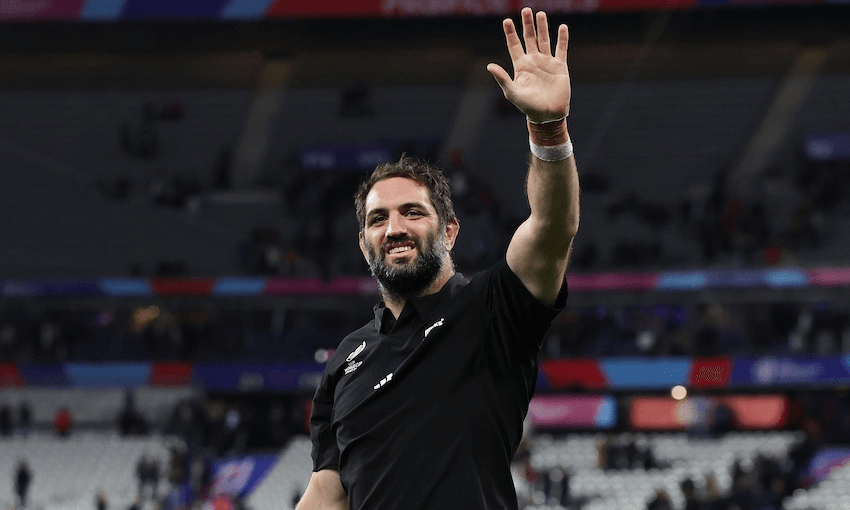Dylan Cleaver speaks with the 153-cap All Blacks legend, who announced his retirement from professional rugby this week.
This is an excerpt from The Bounce, a Substack newsletter by Dylan Cleaver.
Sam Whitelock reckons he could have squeezed a couple more years out of his creaking body.
Speaking from Pau, where the mercury has started to nudge up near 30 and he’s beginning to see why people rave about the south of France, the 35-year-old said that he felt his game still stood up to the harshest scrutiny.
In the end, however, fear won out.
“This is the thing that was going through my head,” Whitelock said. “I’d hate for somebody to come and watch a game I was playing and say to his kid, ‘See that guy there, he used to be awesome.’
“That would really grind my gears.”
After consultation with his family, Whitelock decided he would rather “retire on my terms rather than someone else’s”.
“I’d rather go a year early than a year late.”
Dialogue regarding a return to New Zealand had remained open from the moment he signed a two-year contract to play in Pau alongside his brother, eight-test All Black Luke. The speculation only heightened when it became known that the second-year of the contract contained a player-option clause.
“I’ve had a few messages over the past week asking me if I was coming back and I’m guessing opinion was split on whether I should. That’s fine. I saw a few articles that I didn’t open.”
You can be sure he didn’t, either. Whitelock learned very early in his career that the best way to avoid worrying about what other people thought was to avoid what other people thought. He has largely remained faithful to that self-managed edict.
He takes his counsel from his family – parents Braeden and Caroline, brothers George, Adam and Luke, and wife Hannah – a few trusted rugby mentors, and very few others.
It’s a formula that has kept the largely inscrutable lock at the top of a brutal sport for a decade-and-a-half.
“I don’t think I’ll ever lose that competitive edge. I still feel like I am playing some really good rugby. I still feel like I am playing the lock position better than a lot of people around the world and that will be the hard one – watching a game and thinking, ‘Shit, I can do a better job’.”
Whitelock will spend a European summer with the family, that way avoiding three winters on the bounce. He owes sun-loving Hannah – “she’s been a single parent, really, to Fred, Iris and Penelope” – that much at least, before they return to a farm in Rissington with their name on the title.
It’s Hurricanes territory and there must have been a smidgen of curiosity as to what a return to the region he represented as an age group player would have been like?
Whitelock laughs at the prospect.
“It would look terrible if I returned to the Hurricanes now, when they’re top of the table and the Crusaders aren’t,” he said. “To be brutally honest, I feel like I’ve done Super Rugby. I’ve been a captain, I’ve been successful.”
It was the prospect of playing test rugby under his long-time Crusaders coach Scott Robertson, who last night described Whitelock as “an immortal” of the game, that was lightly pressing a few “what-if” buttons.
After a lifetime of playing for the Crusaders and the All Blacks, the transition to the Top 14 wasn’t without its challenges, especially the language barrier. He envied Luke’s fluency in French and was proud of the mana his little brother carried.
A second season was tempting, but the voice on his shoulder (and in his Achilles, and thoracic spine) grew louder.
He knew it was the right time and he has a simple message for those that will follow.
“If you’re named to play one test, give it your guts because it might be all over after that one. You can’t hold back. It goes so quickly.”
As it was, when Whitelock played one, he had more than 150 to go – the sort of territory nobody thought possible a generation ago.

